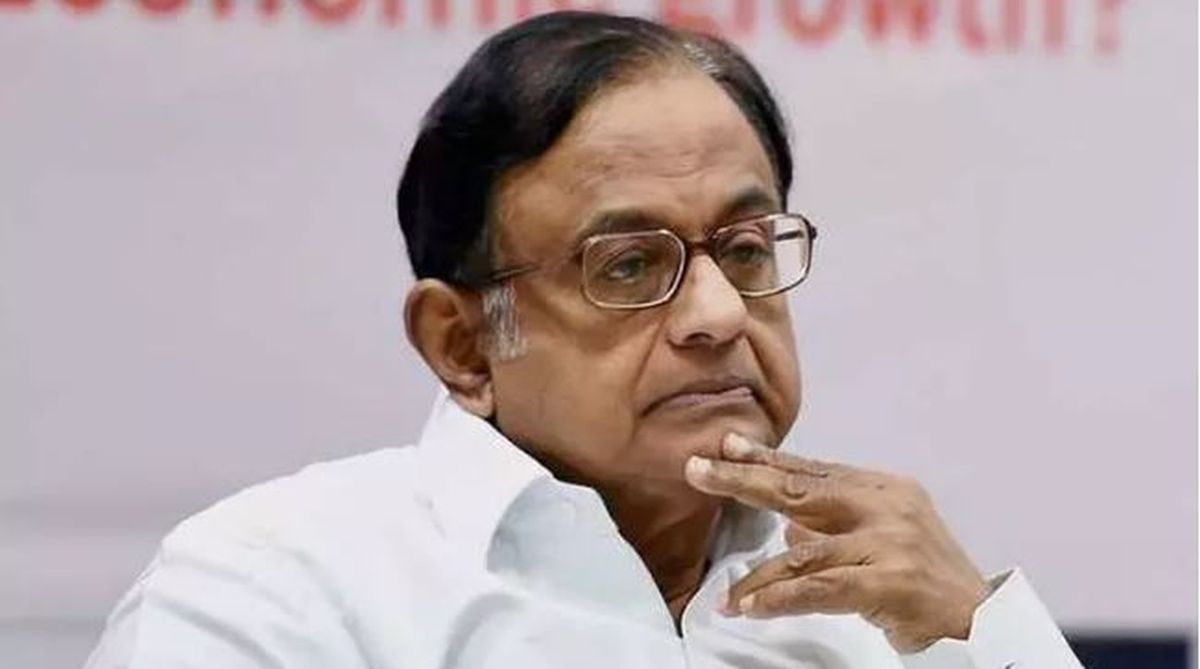Former Union Finance Minister P Chidambaram alleged on Saturday that the government led by Prime Minister Narendra Modi is trying to remove Reserve Bank of India (RBI) Governor Urjit Patel because the Swadeshi Jagran Manch (SJM) wants that.
In a tweet posted from his account, the Congress heavyweight wrote that the efforts against Patel point to a repeat of the Raghuram Rajan story.
Advertisement
“Swadeshi Jagran Manch wants Urjit Patel out. That means the Modi government wants him to go. It is a repeat of the Raghuram Rajan story,” Chidambaram tweeted.
In another tweet, Chidambaram quoted Janet Yellen, the former Chairman of US Federal Reserve, to drive his point on undermining of social and economic stability due to dilution of powers of institutions in which people have faith.
“US Federal Reserve former Chairman, Janet Yellen, said recently ‘whittling away the legitimacy and stature of institutions the public has traditionally some confidence in, ultimately undermines social and economic stability’. How true of India!” he wrote.
According to reports, SJM, the economic wing of the Rashtriya Swayamseval Sangh (RSS), said recently that Patel should either work in tandem with the Centre or put down his papers.
Ashwani Mahajan, the head of SJM, reportedly said that the RBI Governor should also restrain his officials from making the differences between the government and the central bank public.
He was referring to RBI Deputy Governor Viral Acharya’s hard-hitting speech on Friday in which he had warned that undermining central bank’s independence could be “potentially catastrophic”, a possible indication of the RBI being pushed to relax its policies ahead of general elections next year.
“This entire talk of central bank’s independence is a western concept. It is not acceptable and feasible here. India is a developing country our main priority is employment and growth of small-scale industries. RBI should stand with the government on these issues,” Mahajan said.
Read More: RBI governor should work with govt or quit, says RSS economic wing head
Reports had on Wednesday claimed that the government has invoked never-before-used powers under Section 7 of the RBI Act allowing it to issue directions to the central bank governor on matters of public interest.
This Section had never been used in independent India till now. It was not used even when the country was close to default in the dark days of 1991, nor in the aftermath of the 2008 crisis.
Not commenting on the reports, the government on Wednesday confirmed that “extensive consultations” on several issues take place between the government and the Reserve Bank of India (RBI) from time to time in “public interest” and that the autonomy of the central bank is an essential governance requirement.
Read More: Govt confirms ‘extensive consultations’ with RBI amid reports of invoking special powers
The rift between the government and the RBI surfaced after Deputy Governor Viral Acharya in a hard-hitting speech on Friday pitched for “effective independence” of the central bank.
Acharya had said governments that do not respect central bank’s independence would sooner or later incur the “wrath of financial markets, ignite an economic fire and come to rue the day they undermined an important regulatory institution”.
On Tuesday, Finance Minister Arun Jaitley chaired a face-to-face meeting with Patel and Acharya.
Read More: Jaitley slams apex bank for bad loans, chairs meet with Urjit Patel, deputy
Finance Minister Arun Jaitley had on Tuesday criticised the RBI for failing to check indiscriminate lending during 2008 and 2014 that has led to the present bad loan or NPA crisis in the banking industry.
“The central bank looked the other way when banks gave loans indiscriminately from 2008 to 2014,” Jaitley said.









